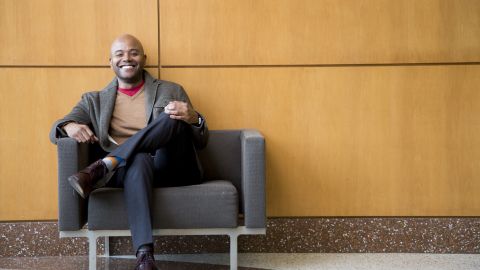Editor’s Note: Peniel E. Joseph is Barbara Jordan chair in ethics and political values and founding director of the Center for the Study of Race and Democracy at the LBJ School of Public Affairs at the University of Texas at Austin, where he is a professor of history. He is the author of “The Third Reconstruction: America’s Struggle for Racial Justice in the Twenty-First Century.” The views expressed here are his own. View more opinion on CNN.
CNN
—
Had he lived, Martin Luther King Jr. would be 94 years old this year. The tragic brevity of his life, cut short by an assassin in 1968, remains a testament to the enduring impact he made during his short time on earth.
Although some may find it hard to believe (or wish it to be otherwise), King lived in a political climate and historical era not so different from our own. Civil rights activists were pilloried as anti-American subversives, Communist dupes and an unpatriotic mob, rhetoric echoed in contemporary attacks against Black Lives Matter (BLM) protesters and even school teachers, whose classroom explorations of Black and American history have triggered a political backlash reminiscent of the civil rights era.
Then, as now, racism, war, poverty and violence scarred the domestic landscape, and its parallel growth in the international arena threatened world peace and stability. Social justice movements swelled at home and abroad and anti-democratic forces organized strongholds in America that, although rooted in the Deep South’s former Confederacy, stretched from sea to shining sea. At the same time, the search for what King called the Beloved Community—a world free of the war’s pestilence, racism’s violence and poverty’s indignity—inspired social justice and peace activists in King’s time, just as ours.
King’s political activism during 1963 reimagined American democracy on both an intimate and expansive scale, introducing a new lexicon for citizenship. He turned political debates over racial integration, non-violent civil disobedience and voting rights into a national, then global, referendum on freedom. King challenged a sitting president and attorney general, John F. Kennedy and Robert F. Kennedy, to recognize the moral urgency of the time by ending legalized racial segregation and guaranteeing Black…
Click Here to Read the Full Original Article at CNN.com – RSS Channel – HP Hero…

